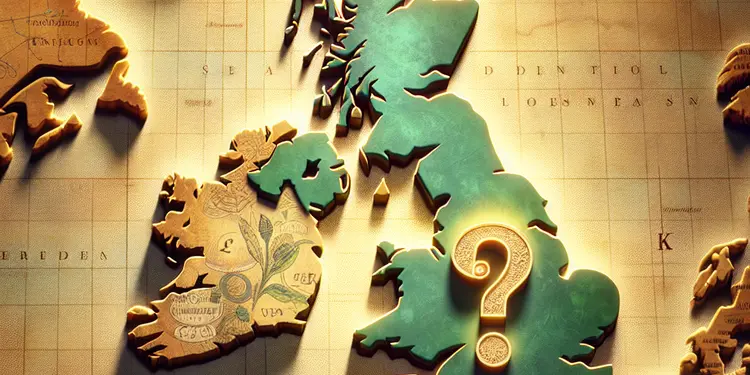
Find Help
More Items From Ergsy search
-

How do other countries implement a wealth tax?
Relevance: 100%
-

Are there any countries currently implementing a wealth tax?
Relevance: 100%
-

What is a Wealth Tax?
Relevance: 88%
-

What is the Wealth Tax in the UK?
Relevance: 86%
-

What is the wealth tax in the UK?
Relevance: 84%
-

Can a wealth tax be levied annually?
Relevance: 83%
-

Could a wealth tax encourage tax avoidance?
Relevance: 81%
-

Has the UK ever had a wealth tax?
Relevance: 80%
-

Would a wealth tax apply to foreign assets?
Relevance: 80%
-

What arguments are made for a wealth tax in the UK?
Relevance: 79%
-

Why doesn't the UK have a wealth tax?
Relevance: 79%
-

Do wealth taxes differ between countries?
Relevance: 77%
-

What is the objective of a wealth tax?
Relevance: 77%
-

Who is typically subject to a wealth tax?
Relevance: 77%
-

Would a wealth tax replace other taxes in the UK?
Relevance: 76%
-

Has any political party in the UK supported a wealth tax?
Relevance: 74%
-

What are the challenges of implementing a wealth tax?
Relevance: 74%
-

How does a wealth tax differ from an income tax?
Relevance: 73%
-

How do governments ensure compliance with wealth tax laws?
Relevance: 73%
-

How do economists view the impact of wealth taxes?
Relevance: 73%
-

How is a wealth tax typically calculated?
Relevance: 73%
-

What are the administrative costs of a wealth tax?
Relevance: 73%
-

Could a wealth tax affect economic growth in the UK?
Relevance: 72%
-

What are common arguments in favor of a wealth tax?
Relevance: 72%
-

Can a wealth tax impact economic behavior?
Relevance: 72%
-

How might a wealth tax impact inequality in the UK?
Relevance: 72%
-

Is real estate included in wealth tax calculations?
Relevance: 71%
-

How might a wealth tax affect wealthy individuals?
Relevance: 70%
-

How does council tax relate to wealth in the UK?
Relevance: 61%
-

Which countries impose inheritance tax?
Relevance: 61%
-

What taxes in the UK target wealth?
Relevance: 55%
-

What are common criticisms of a wealth tax?
Relevance: 53%
-

What exemptions are commonly associated with wealth taxes?
Relevance: 51%
-

Are there alternatives to a wealth tax for addressing inequality?
Relevance: 49%
-

Has the idea of a wealth tax been discussed in political debates?
Relevance: 47%
-

Do public opinion polls support a wealth tax in the UK?
Relevance: 47%
-

What types of assets are typically subject to a wealth tax?
Relevance: 45%
-

Have any other countries implemented a sugar tax similar to the UK?
Relevance: 40%
-

What is Inheritance Tax?
Relevance: 38%
-

Are there professional advisors for inheritance tax planning?
Relevance: 38%
Introduction to Wealth Taxes
Wealth taxes are levied on the net worth of individuals or families, including their assets such as properties, stocks, and cash. These taxes aim to address wealth inequality and generate government revenue. However, the implementation of wealth taxes varies significantly across countries, each with its own approach, rates, and exemptions.
Wealth Taxes in the United Kingdom
In the United Kingdom, there is no direct wealth tax. However, the government collects revenues through related taxes such as inheritance tax, capital gains tax, and council tax. Inheritance tax is charged on estates over a certain threshold, with rates typically at 40%. Capital gains tax applies to profits from the sale of assets, with varying rates depending on the taxpayer's income bracket. Council tax is a local tax based on property value bands.
Wealth Taxes in European Countries
Several European countries implement direct wealth taxes, though they differ in structure. For instance, France has historically had a wealth tax, known as Impôt de solidarité sur la fortune (ISF), which was replaced in 2018 by a tax on real estate wealth exceeding €1.3 million. Spain imposes a wealth tax on assets over €700,000, with regional variances in rates. Switzerland's wealth tax system is canton-based, resulting in differing rates and exemptions across regions.
Wealth Taxes in the United States
The United States does not levy a federal wealth tax, although discussions around implementing one have surfaced in political discourse. Instead, the U.S. relies on property taxes at the local level and capital gains taxes at the federal level to tax wealth. Proposed wealth tax models suggest annual levies on net worth exceeding certain thresholds, but these have yet to be enacted.
Wealth Taxes in Other Parts of the World
Wealth taxes are less common outside Europe and North America but exist in some form in a few countries. For example, Norway has a net wealth tax with national and municipal components, applying to net assets above a specified amount. In Latin America, Argentina reinstated a one-off wealth tax to support pandemic relief efforts, targeting individuals with significant assets.
Challenges and Considerations
Implementing a wealth tax presents challenges, such as accurately valuing diverse assets and addressing potential capital flight or tax avoidance. Critics argue wealth taxes may discourage investment and savings, while proponents assert they reduce inequality and boost public services. Each country's tax regime reflects its economic priorities, societal values, and fiscal needs, making them uniquely tailored to their contexts.
Introduction to Wealth Taxes
Wealth taxes are payments people make based on what they own. This includes things like houses, stocks, and money. These taxes help to make rich and poor more equal and give money to the government. Different countries have different ways of doing this tax, with different rules and amounts to pay.
Wealth Taxes in the United Kingdom
In the United Kingdom, there isn't a specific wealth tax. But, the government gets money through other taxes. These include inheritance tax, capital gains tax, and council tax. Inheritance tax is on things passed down after someone dies, if they are worth a lot. Capital gains tax is on money made from selling things. Council tax is paid for the house you live in.
Wealth Taxes in European Countries
Some European countries have wealth taxes. These are different in each place. France used to have a tax on all kinds of wealth, but now it is only on expensive houses. Spain has a tax on wealth over a certain amount. Switzerland's tax depends on where you live in the country.
Wealth Taxes in the United States
The United States does not have a nationwide wealth tax. But, people talk about it sometimes. Instead, local areas have property taxes, and there's a tax on money made from selling things. New ideas for wealth taxes have been suggested, but not put in place yet.
Wealth Taxes in Other Parts of the World
Wealth taxes are not very common outside of Europe and North America. But some countries have them. Norway has a wealth tax that is split between national and local levels. Argentina brought back a one-time wealth tax to help with COVID-19 recovery.
Challenges and Considerations
Creating a wealth tax can be tricky. It's hard to figure out what everything is worth. Some people might try to hide their money to avoid the tax. Some think these taxes might stop people from saving and investing. Others think they help make things fair and pay for public services. Each country has different reasons for their tax rules.
Frequently Asked Questions
Useful Links
Have you found an error, or do you have a link or some information you would like to share? Please let us know using the form below.
-->
This website offers general information and is not a substitute for professional advice.
Always seek guidance from qualified professionals.
If you have any medical concerns or need urgent help, contact a healthcare professional or emergency services immediately.
Some of this content was generated with AI assistance. We’ve done our best to keep it accurate, helpful, and human-friendly.
- Ergsy carfully checks the information in the videos we provide here.
- Videos shown by Youtube after a video has completed, have NOT been reviewed by ERGSY.
- To view, click the arrow in centre of video.
- Most of the videos you find here will have subtitles and/or closed captions available.
- You may need to turn these on, and choose your preferred language.
- Go to the video you'd like to watch.
- If closed captions (CC) are available, settings will be visible on the bottom right of the video player.
- To turn on Captions, click settings .
- To turn off Captions, click settings again.
More Items From Ergsy search
-

How do other countries implement a wealth tax?
Relevance: 100%
-

Are there any countries currently implementing a wealth tax?
Relevance: 100%
-

What is a Wealth Tax?
Relevance: 88%
-

What is the Wealth Tax in the UK?
Relevance: 86%
-

What is the wealth tax in the UK?
Relevance: 84%
-

Can a wealth tax be levied annually?
Relevance: 83%
-

Could a wealth tax encourage tax avoidance?
Relevance: 81%
-

Has the UK ever had a wealth tax?
Relevance: 80%
-

Would a wealth tax apply to foreign assets?
Relevance: 80%
-

What arguments are made for a wealth tax in the UK?
Relevance: 79%
-

Why doesn't the UK have a wealth tax?
Relevance: 79%
-

Do wealth taxes differ between countries?
Relevance: 77%
-

What is the objective of a wealth tax?
Relevance: 77%
-

Who is typically subject to a wealth tax?
Relevance: 77%
-

Would a wealth tax replace other taxes in the UK?
Relevance: 76%
-

Has any political party in the UK supported a wealth tax?
Relevance: 74%
-

What are the challenges of implementing a wealth tax?
Relevance: 74%
-

How does a wealth tax differ from an income tax?
Relevance: 73%
-

How do governments ensure compliance with wealth tax laws?
Relevance: 73%
-

How do economists view the impact of wealth taxes?
Relevance: 73%
-

How is a wealth tax typically calculated?
Relevance: 73%
-

What are the administrative costs of a wealth tax?
Relevance: 73%
-

Could a wealth tax affect economic growth in the UK?
Relevance: 72%
-

What are common arguments in favor of a wealth tax?
Relevance: 72%
-

Can a wealth tax impact economic behavior?
Relevance: 72%
-

How might a wealth tax impact inequality in the UK?
Relevance: 72%
-

Is real estate included in wealth tax calculations?
Relevance: 71%
-

How might a wealth tax affect wealthy individuals?
Relevance: 70%
-

How does council tax relate to wealth in the UK?
Relevance: 61%
-

Which countries impose inheritance tax?
Relevance: 61%
-

What taxes in the UK target wealth?
Relevance: 55%
-

What are common criticisms of a wealth tax?
Relevance: 53%
-

What exemptions are commonly associated with wealth taxes?
Relevance: 51%
-

Are there alternatives to a wealth tax for addressing inequality?
Relevance: 49%
-

Has the idea of a wealth tax been discussed in political debates?
Relevance: 47%
-

Do public opinion polls support a wealth tax in the UK?
Relevance: 47%
-

What types of assets are typically subject to a wealth tax?
Relevance: 45%
-

Have any other countries implemented a sugar tax similar to the UK?
Relevance: 40%
-

What is Inheritance Tax?
Relevance: 38%
-

Are there professional advisors for inheritance tax planning?
Relevance: 38%


